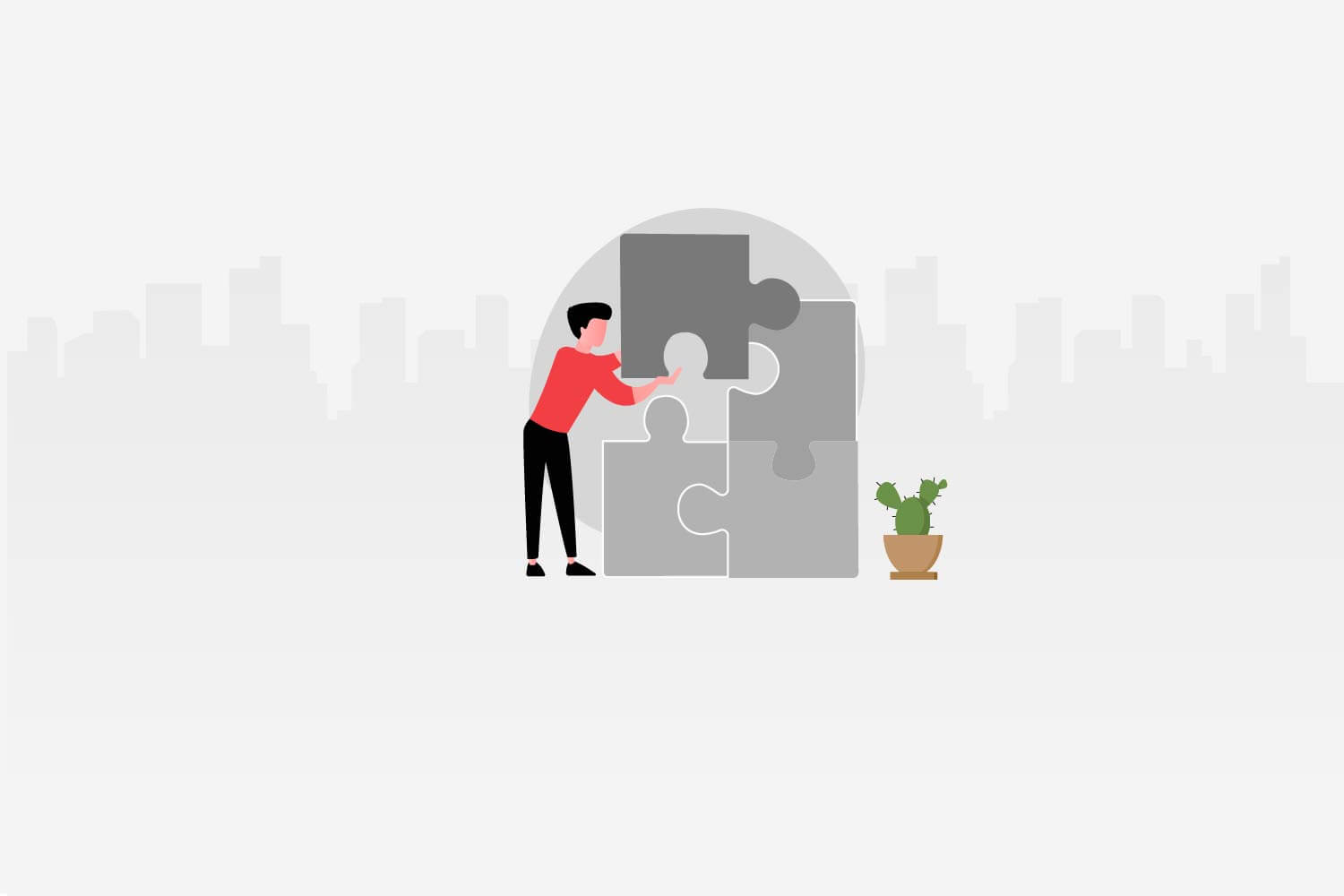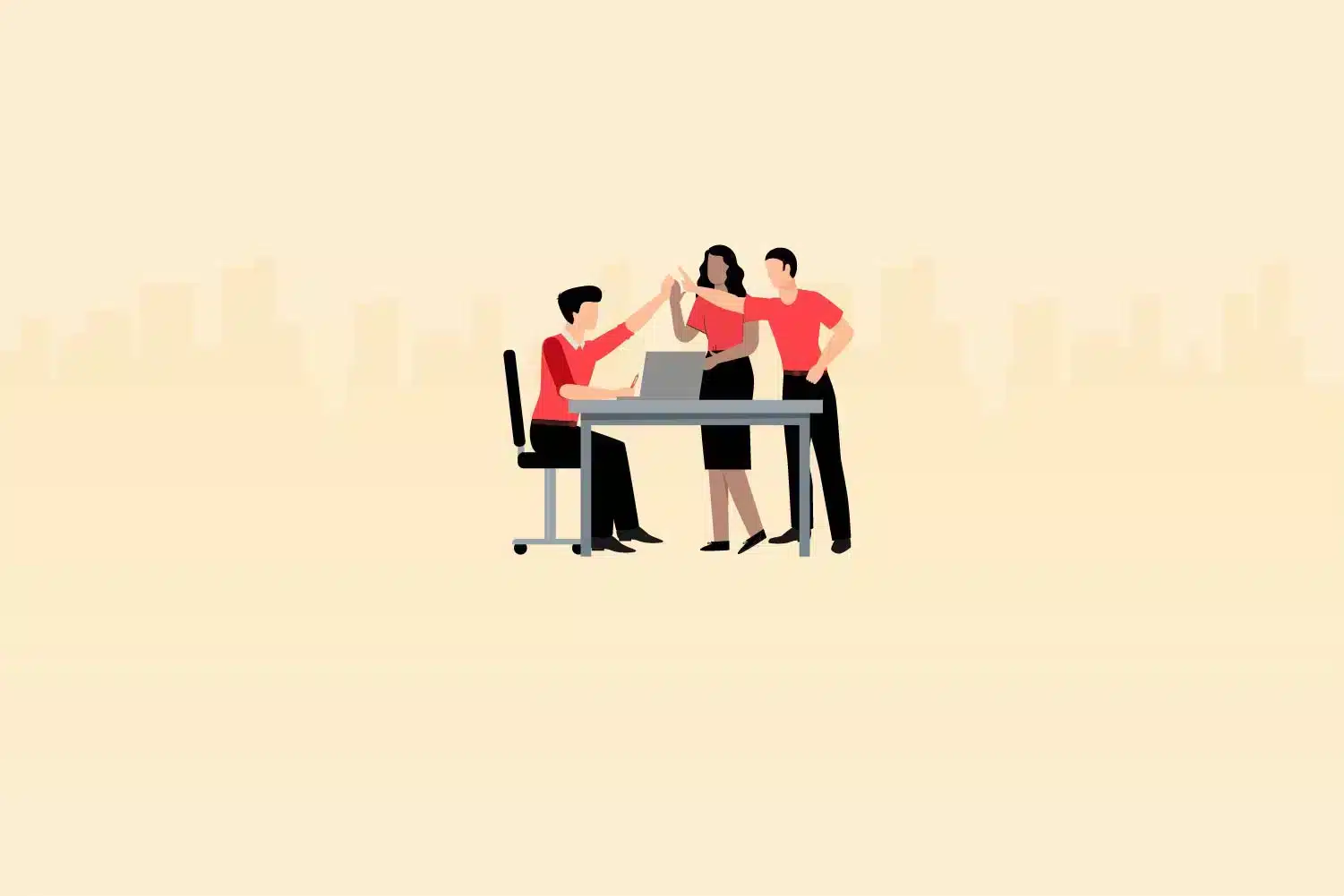The landscape of organizational development is evolving rapidly, with businesses recognizing the crucial role of Organizational Development Assistants in driving positive change and optimizing their human capital. As HR professionals and CXOs seek to strengthen their organizations, the demand for skilled and strategic Organizational Development Assistants has soared.
According to recent analytics, the recruiting trend for this vital role has experienced a significant upswing, reflecting a growing emphasis on cultivating a thriving workplace culture and maximizing employee performance. In this dynamic environment, it is imperative to understand the key factors that drive success in hiring and managing Organizational Development Assistants. To help navigate this landscape, we have curated a set of insightful interview questions that will enable you to assess candidates’ expertise, competencies, and alignment with your organizational goals.
Here are the top 60 Organizational Development Assistant interview questions to ask job applicants:
15 general interview questions for the Organizational Development Assistant
- Can you provide an overview of your experience and qualifications in the field of organizational development?
- How do you stay updated on the latest trends and best practices in organizational development?
- Can you describe a successful organizational development initiative you have led in the past? What was the outcome?
- How do you approach assessing organizational needs and identifying areas for improvement?
- Can you explain your process for designing and implementing organizational development interventions or programs?
- How do you measure the effectiveness of your organizational development initiatives?
- Can you provide an example of a time when you encountered resistance to change during an organizational development project? How did you handle it?
- What strategies do you employ to foster employee engagement and create a positive work culture?
- How do you collaborate with HR teams and other departments to align organizational development initiatives with broader business objectives?
- Can you discuss a situation where you had to manage multiple projects or priorities simultaneously? How did you ensure their successful completion?
- How do you ensure confidentiality and ethical considerations when working with sensitive organizational data or information?
- How do you approach building strong relationships and effectively communicating with stakeholders at various levels within an organization?
- Can you describe a time when you had to deal with resistance to change from senior leadership? How did you navigate this situation?
- How do you handle conflict within teams or among individuals during an organizational development process?
- What role do you see technology playing in the future of organizational development, and how do you stay updated on relevant technological advancements?
5 sample answers to general interview questions for the Organizational Development Assistant
- Can you provide an overview of your experience and qualifications in the field of organizational development?
Look for: A candidate who can confidently highlight their relevant experience, education, certifications, and any specific achievements or notable projects.
Sample answer: “I have a Bachelor’s degree in Organizational Psychology and five years of experience working in organizational development roles. During my tenure at Company X, I successfully implemented a comprehensive employee training program that resulted in a 20% increase in overall productivity and a 15% decrease in employee turnover.”
- Can you describe a successful organizational development initiative you have led in the past? What was the outcome?
Look for: Evidence of the candidate’s ability to plan, execute, and measure the success of organizational development initiatives, and their understanding of key metrics and outcomes.
Sample answer: “In my previous role at Company Y, I led a change management initiative to streamline the company’s performance appraisal process. By implementing a new software system and providing training to managers, we improved the efficiency of the appraisal process by 30% and increased employee satisfaction scores by 15%.”
- How do you approach assessing organizational needs and identifying areas for improvement?
Look for: A systematic approach that involves gathering data, conducting analyses, and involving stakeholders to identify organizational gaps and opportunities.
Sample answer: “When assessing organizational needs, I believe in utilizing a combination of quantitative and qualitative methods. I gather data through employee surveys, conduct focus groups, and analyze key performance indicators. By involving stakeholders from various departments, I ensure a comprehensive understanding of the organization’s strengths and areas for improvement.”
- How do you measure the effectiveness of your organizational development initiatives?
Look for: A candidate who understands the importance of measuring the impact of interventions and can discuss specific metrics or evaluation methods they have utilized.
Sample answer: “To measure the effectiveness of organizational development initiatives, I typically use a combination of qualitative and quantitative measures. This includes employee feedback surveys, performance data analysis, and post-implementation reviews. For example, in a recent leadership development program, I used pre-and post-training assessments to measure improvements in participants’ leadership competencies.”
- How do you handle conflict within teams or among individuals during an organizational development process?
Look for: Conflict resolution skills, the ability to foster open communication and strategies for promoting collaboration and resolving differences effectively.
Sample answer: “When faced with conflict during an organizational development process, I believe in addressing it promptly and directly. I encourage open dialogue among team members, actively listen to their concerns, and facilitate constructive discussions to find common ground. By promoting a culture of respect and collaboration, I have successfully resolved conflicts and maintained team cohesion.”
15 behavioral interview questions for an Organizational Development Assistant
- Describe a time when you had to identify and address a significant organizational challenge. How did you go about it, and what were the outcomes?
- Can you share an example of a time when you facilitated a change management process within an organization? What strategies did you use to ensure the successful adoption of the change?
- Tell me about a situation where you had to work with a resistant employee or team. How did you approach it, and what steps did you take to overcome the resistance?
- Describe a time when you collaborated with HR teams or other departments to implement a comprehensive talent development program. What was your role, and how did you ensure alignment with organizational goals?
- Give an example of when you used data analysis to identify trends or patterns that influenced organizational decision-making. How did you communicate your findings and recommendations?
- Can you share an experience where you played a key role in improving employee engagement and morale within an organization? What strategies did you implement, and what were the outcomes?
- Describe a time when you had to manage multiple projects simultaneously. How did you prioritize tasks, allocate resources, and ensure successful project completion?
- Tell me about a difficult conversation you had to have with a senior leader or executive. How did you approach the conversation, and what was the result?
- Give an example of when you designed and delivered a training program or workshop to enhance employees’ skills or knowledge. How did you ensure its effectiveness and engagement?
- Describe a situation where you successfully facilitated team-building activities to foster collaboration and enhance team dynamics. What approaches did you use, and how did you measure the impact?
- Can you share an experience where you had to handle sensitive or confidential organizational information? How did you ensure data security and maintain trust?
- Tell me about a time when you had to navigate a complex organizational structure to implement an organizational development initiative. What challenges did you face, and how did you overcome them?
- Give an example of when you utilized innovative approaches or technologies to enhance organizational development processes. What was the outcome, and how did you ensure successful adoption?
- Describe a situation where you encountered resistance to feedback during an organizational development intervention. How did you handle it, and what strategies did you employ to ensure the feedback was received constructively?
- Tell me about a time when you had to deal with ambiguity and adapt quickly to changing circumstances during an organizational development project. How did you manage the situation, and what were the results?
5 sample answers to behavioral interview questions for the Organizational Development Assistant
- Describe a time when you had to identify and address a significant organizational challenge. How did you go about it, and what were the outcomes?
Look for: Problem-solving skills, the ability to analyze complex situations, and evidence of driving positive outcomes through effective interventions.
Sample answer: “In my previous role, the organization faced a decline in employee satisfaction scores. To address this challenge, I conducted surveys, held focus groups, and analyzed data to identify the root causes. Based on the findings, I developed a comprehensive employee engagement plan that included initiatives such as flexible work hours, recognition programs, and professional development opportunities. As a result, we observed a 20% increase in employee satisfaction scores within six months.”
- Can you share an example of a time when you facilitated a change management process within an organization? What strategies did you use to ensure the successful adoption of the change?
Look for: Change management expertise, communication skills, and the ability to influence stakeholders to embrace change.
Sample answer: “During a merger between two organizations, I played a key role in facilitating the change management process. I employed strategies such as creating a detailed communication plan, conducting town hall meetings, and providing training sessions to address employee concerns and promote understanding. By involving employees in the decision-making process and consistently communicating the benefits of the merger, we achieved a high level of employee buy-in and successful integration of the two organizations.”
- Tell me about a situation where you had to work with a resistant employee or team. How did you approach it, and what steps did you take to overcome the resistance?
Look for: Conflict resolution skills, ability to build relationships, and strategies to address resistance effectively.
Sample answer: “In a project aimed at implementing a new performance management system, I encountered resistance from a team of managers who were skeptical about the changes. To address this, I organized one-on-one meetings to understand their concerns, provided detailed explanations about the benefits of the new system, and offered training sessions to build their confidence. By actively involving them in the decision-making process and demonstrating the positive impact of the system, I was able to overcome their resistance and gain their support.”
- Describe a time when you collaborated with HR teams or other departments to implement a comprehensive talent development program. What was your role, and how did you ensure alignment with organizational goals?
Look for: Collaboration skills, ability to work cross-functionally, and strategic alignment with organizational objectives.
Sample answer: “In collaboration with the HR department, I led the design and implementation of a talent development program aimed at enhancing leadership skills within the organization. My role involved conducting needs assessments, designing the curriculum, and coordinating training sessions. To ensure alignment with organizational goals, I actively engaged with senior leaders, obtained their input, and incorporated their strategic priorities into the program. This alignment resulted in a talent pipeline that was aligned with the organization’s long-term vision and objectives.”
- Give an example of when you used data analysis to identify trends or patterns that influenced organizational decision-making. How did you communicate your findings and recommendations?
Look for: Analytical skills, ability to draw insights from data, and effective communication of findings to stakeholders.
Sample answer: “In a project focused on improving employee retention, I analyzed employee data, such as turnover rates, exit interview feedback, and engagement survey results. By identifying trends and patterns, I discovered that lack of career development opportunities was a significant factor contributing to turnover. I compiled a comprehensive report presenting the data-driven findings and providing recommendations to introduce mentoring programs, training initiatives, and career planning resources. To ensure effective communication, I presented the findings to the executive team in a clear and concise manner, highlighting the potential impact on the organization’s long-term success.”
15 personality interview questions for the Organizational Development Assistant
- How do you handle ambiguity and uncertainty in the workplace?
- Describe a situation where you had to navigate through conflicting priorities. How did you manage it?
- Can you give an example of when you demonstrated resilience in the face of challenges or setbacks?
- How do you approach building relationships and establishing rapport with individuals at different levels within an organization?
- Tell me about a time when you had to persuade others to adopt a new idea or change. How did you go about it?
- How do you ensure attention to detail while managing multiple tasks or projects?
- Describe your approach to handling confidential information and maintaining trust in professional relationships.
- Can you give an example of when you displayed adaptability in a rapidly changing work environment?
- How do you approach conflict resolution and handling difficult conversations in the workplace?
- Describe a situation where you had to exercise your creativity or think outside the box to solve a problem.
- How do you stay motivated and engaged in your work, especially during challenging or high-pressure situations?
- Tell me about a time when you actively sought feedback and used it to improve your performance or skills.
- Describe a situation where you demonstrated strong leadership qualities, even without a formal leadership position.
- How do you handle feedback or criticism from others? Can you give an example?
- Tell me about a time when you had to work as part of a team to achieve a common goal. What was your role, and how did you contribute?
5 sample answers to personality interview questions for Organizational Development Assistant
- How do you handle ambiguity and uncertainty in the workplace?
Look for: Adaptability, comfort with change, and the ability to remain focused and productive in uncertain situations.
Sample answer: “I thrive in environments with ambiguity and uncertainty. When faced with such situations, I remain calm and focused by breaking down complex problems into smaller manageable tasks. I prioritize based on available information and seek clarification when needed. By maintaining open communication with stakeholders, I ensure that everyone is on the same page and can navigate through ambiguity collectively.”
- Describe a situation where you had to navigate through conflicting priorities. How did you manage it?
Look for: Strong prioritization skills, the ability to make informed decisions and effective communication to manage conflicting demands.
Sample answer: “In my previous role, I had multiple projects with tight deadlines, all requiring my attention simultaneously. To manage the conflicting priorities, I assessed the importance and urgency of each task, consulted with stakeholders to gain clarity on expectations, and communicated the situation to my supervisor. By being transparent about the competing demands, we were able to collaboratively reprioritize tasks and adjust deadlines, ensuring that all critical objectives were met.”
- Can you give an example of when you demonstrated resilience in the face of challenges or setbacks?
Look for: Resilience, perseverance, and the ability to bounce back from setbacks while maintaining a positive attitude.
Sample answer: “During a major organizational restructuring, my team faced significant uncertainty and changes in roles and responsibilities. Despite the challenges, I maintained a positive outlook and motivated my team through regular communication and support. By focusing on problem-solving and adapting to the new circumstances, we successfully transitioned into the new structure, and productivity levels were quickly restored.”
- How do you approach building relationships and establishing rapport with individuals at different levels within an organization?
Look for: Strong interpersonal skills, the ability to connect with diverse individuals, and build collaborative relationships.
Sample answer: “I believe in fostering open and honest communication to build relationships with individuals at all levels within an organization. I actively listen to understand their perspectives, show empathy, and find common ground. By demonstrating respect, integrity, and a genuine interest in others, I have successfully established rapport and built strong relationships that promote collaboration and achieve shared goals.”
- How do you stay motivated and engaged in your work, especially during challenging or high-pressure situations?
Look for: Self-motivation, resilience, and the ability to maintain focus and productivity during challenging times.
Sample answer: “During challenging or high-pressure situations, I stay motivated by focusing on the bigger picture and reminding myself of the positive impact my work can have on the organization. I break down tasks into manageable steps, celebrate small milestones, and seek support or guidance when needed. By maintaining a positive mindset, prioritizing self-care, and leveraging stress-management techniques, I ensure that I remain engaged and perform at my best, even during challenging periods.”
When should you use skill assessments in your hiring process for Organizational Development Assistant?
Skill assessments can be valuable tools to incorporate into the hiring process for an Organizational Development Assistant. These assessments are important because they provide objective data that helps evaluate a candidate’s proficiency in key skills required for the role. By using skill assessments, you can ensure that candidates possess the necessary competencies to excel in areas such as organizational analysis, change management, communication, data analysis, and project management.
Skill assessments help to minimize biases and subjectivity in the hiring process, allowing you to make more informed decisions based on objective measurements. They provide a standardized evaluation method that allows for fair and consistent comparisons among candidates. Additionally, skill assessments can uncover hidden talents and potential in candidates that may not be apparent through traditional interviews alone.
There are various skill assessments that can be used to assess the skills of Organizational Development Assistants. These assessments may include scenario-based exercises, case studies, role-playing simulations, or even online tests that evaluate specific skills or competencies. For example, you might consider utilizing assessments that measure a candidate’s ability to analyze organizational data, create and deliver presentations, handle conflict resolution, or demonstrate leadership qualities. By tailoring assessments to target the specific skills relevant to the role, you can gain deeper insights into a candidate’s capabilities and make more informed hiring decisions.
Use our interview questions and skill tests to hire talented Organizational Development Assistant
Unlock the potential of your hiring process with Testlify’s comprehensive skill assessments and interview questions specifically designed for Organizational Development Assistant.
Our extensive test library offers a wide range of assessments, including cognitive function, personality, situational judgment, programming, and more. By leveraging these assessments, you can objectively evaluate candidates’ abilities, ensuring you shortlist the most talented individuals efficiently.
To further enhance your hiring process, we invite you to book a free 30-minute live demo. Our expert team will guide you through the platform, showcasing relevant skill tests tailored to your hiring needs. With our support, you can streamline candidate selection, saving valuable time and resources.
Ready to find the perfect fit for your Organizational Development Assistant role? Testlify provides the tools you need to make informed hiring decisions. Explore our skill assessments and interview questions today to uncover exceptional talent for your team.








